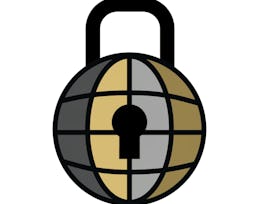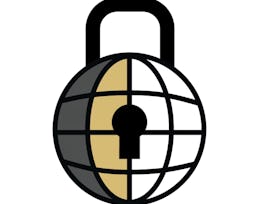In this course we will examine the aviation and Internet infrastructures, and various policies that have been developed to help guide and strengthen their cybersecurity programs. The aviation and Internet infrastructures are also considered "lifeline infrastructure" as part of the transportation and communications sectors. Both subsectors are overseen by the Department of Homeland Security National Protection and Programs Directorate which manages the DHS National Infrastructure Protection Program. SSA responsibility for the aviation subsector is shared between the Transportation Security Administration and Federal Aviation Administration under the auspices of the Department of Homeland Security and Department of Transportation respectively. The Department of Homeland Security retains sole responsibility as the Sector-Specific Agency for the Internet subsector. While TSA and FAA have regulatory over the aviation subsector, DHS has no regulatory authority whatsoever over the Internet. In response to Executive Order 13636 issued by President Obama in February 2013, both sets of SSAs recommended continuing with voluntary cybersecurity measures. TSA and FAA reported they were working to implement the Transportation Roadmap across all transportation subsectors, including aviation. DHS reported that it was working with Internet providers to implement the Cyber Assessment Risk Management Approach. Despite some differences, the Transportation Roadmap and CARMA are very similar to the NIST Cybersecrity Framework and ES-C2M2 examined previously. That is to say, they are predicated on a continuous improvement process that engages the whole organization in identifying and implementing incremental changes to enhance cybersecurity practices based on prevailing standards. This module will examine both the aviation and Internet lifeline infrastructure subsectors, and elements and application of the Transportation Roadmap and CARMA.


Cybersecurity Policy for Aviation and Internet Infrastructures
This course is part of Homeland Security and Cybersecurity Specialization
Taught in English
Some content may not be translated

Instructor: Richard White
7,097 already enrolled
Included with 
Course
(247 reviews)
Details to know

Add to your LinkedIn profile
13 quizzes
Course
(247 reviews)
See how employees at top companies are mastering in-demand skills

Build your subject-matter expertise
- Learn new concepts from industry experts
- Gain a foundational understanding of a subject or tool
- Develop job-relevant skills with hands-on projects
- Earn a shareable career certificate


Earn a career certificate
Add this credential to your LinkedIn profile, resume, or CV
Share it on social media and in your performance review

There are 4 modules in this course
In this module will examine the aviation subsector and the Transportation Roadmap for strengthening this infrastructure's resistance to cyber attack.
What's included
3 videos4 readings2 quizzes1 discussion prompt
In this module we will examine the difference between cybersecurity for fixed versus mobile assets, and take a closer look at the Transportation Roadmap and apply its tenets to different hypothetical situations. Also included in this module is course exam #5. Good luck!
What's included
3 videos4 quizzes1 discussion prompt
In this module will examine the Internet subsector and the Cyber Assessment Risk Management Approach for strengthening this infrastructure's resistance to cyber attack.
What's included
2 videos4 readings2 quizzes1 discussion prompt
In this module we will take a closer look at the Cyber Assessment and Risk Management Approach and apply its tenets to different hypothetical situations. Also included in this module is the course exam #6 and related project assignment. Good luck!
What's included
3 videos5 quizzes1 discussion prompt
Instructor

Offered by
Recommended if you're interested in Governance and Society

University of Colorado System

University of Colorado System

University of Colorado System

Board Infinity
Why people choose Coursera for their career




Learner reviews
Showing 3 of 247
247 reviews
- 5 stars
78.62%
- 4 stars
17.33%
- 3 stars
2.82%
- 2 stars
1.20%
- 1 star
0%

Open new doors with Coursera Plus
Unlimited access to 7,000+ world-class courses, hands-on projects, and job-ready certificate programs - all included in your subscription
Advance your career with an online degree
Earn a degree from world-class universities - 100% online
Join over 3,400 global companies that choose Coursera for Business
Upskill your employees to excel in the digital economy
Frequently asked questions
Access to lectures and assignments depends on your type of enrollment. If you take a course in audit mode, you will be able to see most course materials for free. To access graded assignments and to earn a Certificate, you will need to purchase the Certificate experience, during or after your audit. If you don't see the audit option:
The course may not offer an audit option. You can try a Free Trial instead, or apply for Financial Aid.
The course may offer 'Full Course, No Certificate' instead. This option lets you see all course materials, submit required assessments, and get a final grade. This also means that you will not be able to purchase a Certificate experience.
When you enroll in the course, you get access to all of the courses in the Specialization, and you earn a certificate when you complete the work. Your electronic Certificate will be added to your Accomplishments page - from there, you can print your Certificate or add it to your LinkedIn profile. If you only want to read and view the course content, you can audit the course for free.
If you subscribed, you get a 7-day free trial during which you can cancel at no penalty. After that, we don’t give refunds, but you can cancel your subscription at any time. See our full refund policy.

